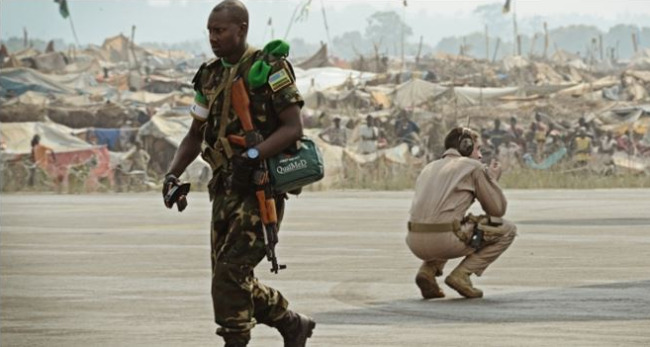Security - Defense
As a result of global strategic competition, security and defense issues are marked by the return of major wars and nuclear deterrence, the transformation of terrorism and the race for military technologies.
Related Subjects

Maîtriser la puissance de feu. Un défi pour les forces terrestres
Over the last few decades, in order to limit the risk of collateral damage, tailoring the effects of firepower has become a main concern for Western armed forces.
La cyberguerre des gangs aura-t-elle lieu ?
Gangs have relied on cyberspace to evolve. New information technologies have allowed them to speed up and globalize their operations.
L'opération Serval à l'épreuve du doute : vrais succès, fausses leçons
The deployment of French forces to Mali in January 2013 with the objective to counter the offensive of jihadist groups from Northern Mali, demonstrated the French armed forces’ ability to deploy on a very short notice and to conduct a long-distance expeditionary operation by themselves in spite of their limited strategic capabilities.
Thinking and Anticipating the Socio-Economic Impacts of the Humanitarian Response in the Central African Republic
Nowadays, the Central African Republic (CAR) is a country dependent on international aid.
Activists Without Borders
Various associations organise trips to Israel and/or to the Palestinian Territories. Someone who has no previous knowledge of the Near East and who takes part in a journey organised by a pro-Israeli group, would return to France with a very different vision of the Israeli-Palestinian conflict to that of someone who had travelled with a pro-Palestinian group.
For more information concerning the complete work, please click on this link.
Deploying the Bundeswehr: more transparency, more flexibility, but Parliament’s consent remains key - The Rühe Commission’s final report
Besides the often invoked historical dimension behind Germany’s strategic culture of restraint, there are today very tangible legal reasons that prevent assertive German military interventionism (which are, of course, directly linked to the historical dimension): any intervention of the German armed forces requires the Bundestag’s consent.
Web social et djihadisme : du diagnostic aux remèdes
From Al Qaeda to Islamic state, the international jihadist movement understands how to adapt to the web’s evolution, which it is using as an operating platform.

Terrorism and Counter-Radicalization: the Danish Model
There have only been two terrorist attacks in Denmark over the last thirty years: in 1985 and 2015. Other attacks have been prevented, notably those planned against the illustrators whose drawings of the prophet Mohammed were published in Jyllands-Posten.

The Country Risk Concept
The expression “country risk” emerged in the United States in the 1960s. Its meaning has evolved over time, without any definition ever really being settled on.

Defeating Daesh: A Financial and Military Campaign
The Islamic State has considerable income, mostly from taking control of banks; managing trafficking networks – particularly hydrocarbons – and from external support.
Support independent French research
Ifri, a foundation recognized as being of public utility, relies largely on private donors – companies and individuals – to guarantee its sustainability and intellectual independence. Through their funding, donors help maintain the Institute's position among the world's leading think tanks. By benefiting from an internationally recognized network and expertise, donors refine their understanding of geopolitical risk and its consequences on global politics and the economy. In 2025, Ifri supports more than 80 French and foreign companies and organizations.















